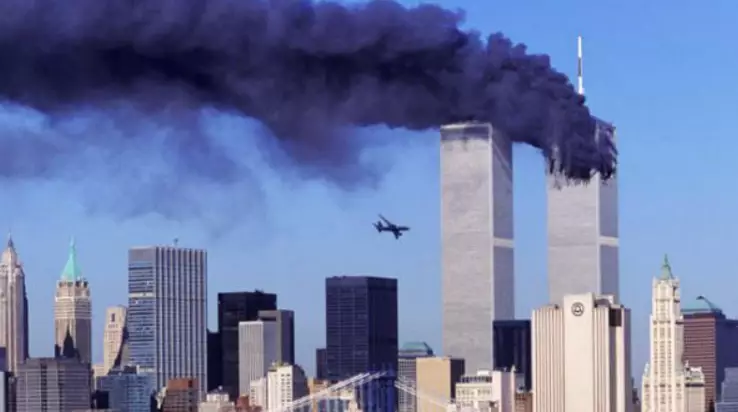
On September 11, 2001, at 1.44pm UK time (8.44am EDT), everyone was just getting on with life as normal around the planet.
A minute later, the world, as we knew it, had changed, although only a few thousand people in New York 'got the memo' at the time.
Advert
That was when the first plane flew into the north tower of The World Trade Center.
Today, the first thought would be 'terrorism', but for a few minutes there was still some speculation that this may have just been a terrible accident on a catastrophic scale.
At 2.03pm UK time, 18 minutes later, the second plane flew into the other tower. With film crews already on the ground, the whole world saw the aircraft fly straight into a modern-day monument, filled with people both in the building and on the plane. This was no accident. This was an act of terror so callous and on such a large scale that it had never been seen before.
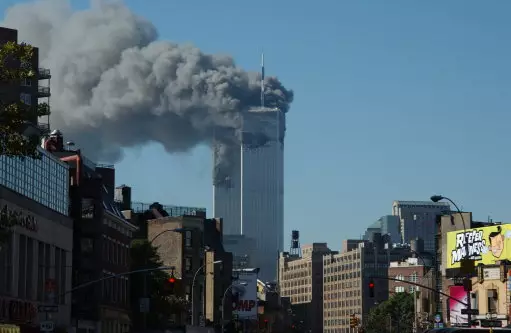
Since that day, the war has always been on 'terror', and the many guises it has.
Advert
The World Trade Center, the epitome of the American dream, the hub for successful commerce, had been destroyed. A total of 2,977 innocent people lost their lives that day, as well as 19 hijackers. Though, to that 19, the act of martyrdom was a pivotal sacrifice that would change the dynamics of war for a generation at least.
As well as those two atrocities, a plane also came down in the Pentagon, while Flight 93 crashed mysteriously in Pennsylvania, leading to speculation that the people on the flight fought back against the terrorists, thwarting whatever plan they may have had. However, this still remains as just speculation.
It is one of those moments in history, where, if you're old enough, you remember where you were when you found out. This was before the days of Twitter and instant media, where you found out either by watching the news or, in the first instance, through word of mouth.
I was 13 and in a geography lesson. The teacher left the room after the headmaster knocked, came back, and told us he had some terrible news.
Advert
In those days, such an act of terror was unfathomable, certainly on that scale. To a 13-year-old, it made no sense.
HOW DID THE WORLD TRADE CENTER GET ATTACKED?
And who was Mohamed Atta?...
Advert
Conspiracies aside, terrorists hijacked four planes. While the Pentagon and Flight 93 events will always remain in the memories of everyone, it will be the two planes crashing into the World Trade Center that will be 'remembered'.
Mohamed Atta was the ring-leader of the operation with the rest of the 'Hamburg cell'. The Egyptian-born, middle class architecture graduate and son of a lawyer hijacked American Airlines Flight 11 with four other terrorists. This was the first plane to hit the World Trade Center.
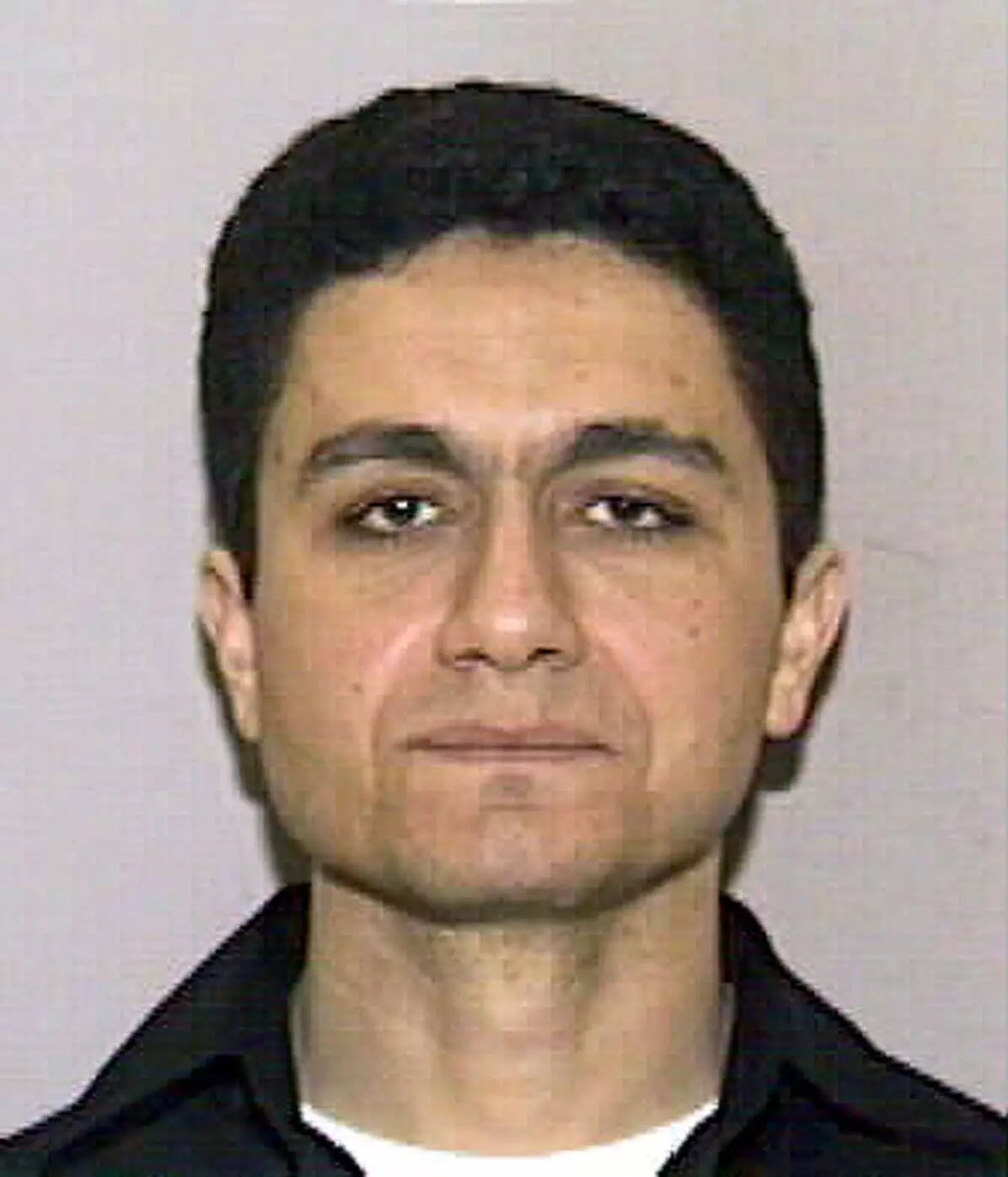
Mohamed Atta.
Advert
He met with Osama Bin Laden in late 1999 and other prominent Al Qaeda members, where he was tasked with the operation of bringing death and destruction to the west, or... rather, West, to them - an 'us and them' divide that, all of a sudden, never felt more acute.
There has been a lot of analysis on Atta, but the prevailing train of thought is that Atta's motives were more than just aligned with religious extremism, but he was also driven by a strong feeling of social injustice. Author Stephen Holmes' assertion that his personal feelings were: "...more fury at the plight of the poor and the indifference of the rich," is a popular belief. This of course suggests his motives for committing such an atrocity were not purely religiously motivated. The end result is of course the same: that of utter destruction.
WHAT HAPPENED STRAIGHT AFTER 9/11?
From the aftermath of the attack came the rhetoric.
Colin Powell, the US Secretary of State at the time, said: "It was an attack on civilisation. It was an assault on democracy." And he wasn't wrong. It wasn't simply an 'American' thing. Powell was building up a rhetoric which would mean that this was a global call to action against a 'new' threat.
Gone were the days of the Cold War and the fear of communism. In came a new enemy: that of fundamental extremism.
Just eight days before the attacks, Bin Laden said it was time to attack "unjust and tyrannical America" in a broadcast, and his words reverberated around the globe in a chilling new light. If Al Qaeda could attack such a symbol of American strength, it could attack anywhere, anyone, at any time.
And after the attacks, George W. Bush, no doubt without realising, raised the rhetoric bar even higher when he said on TV: "This crusade... This, war on terrorism, is gonna take a while, and the American people must be patient... I can assure the American people, I am determined. I'm not gonna be distracted."
Crusade. Synonymous with white Christians going over to the Middle East and North Africa to kill Muslims and show them 'God's Christian way'.
But this battle is not centuries old. It started so publicly on September 11 (this attack was the catalyst for a completely westernised restructuring of the MENA region), and has rumbled on since.
HOW 9/11 AFFECTED THE NEXT 15 YEARS...
So has the world become a safer place since 9/11? Since the slow process to purge the world of fundamental extremism?
No, it's got much worse.
Splinter cells emerged from Al Qaeda and the Taliban, some, perplexingly, with even more radical mandates. ISIS has appeared in the Levant region, with more local cells being set up at an alarming rate in a number of countries. That's all been punctuated with high-profile attacks since 9/11 along the way.
London 7/7...
When London was attacked on July 7, 2005, it almost felt like the inevitable had finally happened.
On a standard working morning, these coordinated attacks using public transport killed 52 innocent civilians. Three terrorists detonated suicide vests on the London Underground, while a fourth detonated his on a double-decker bus on Tavistock Square, all within an hour of each other. Al Qaeda claimed responsibility. These were British Muslims, indoctrinated, angry and ready to kill in the name of a Holy War.

Again, this upped the rhetoric from prominent public figures. But this time, it wasn't just blunt talk of crusades and a war on terror, but also of solidarity.
The queen, a day after the events, gave a poignant and very well thought out speech.
She made her points clear, making an allusion to Nazi Germany, but without the 'let's go get 'em' lingo. Among other points, she stated:
"I know I speak for everyone in expressing my sympathy to those who have been caught up in these events. ... I want to express my admiration, for the people of our capital city, who in the aftermath of yesterday's bombings, are calmly determined to resume their normal lives.
"That is the answer to this outrage.
"Sadly, we in Britain have been all too familiar with acts of terror, and members of my generation, especially at this end of London, know that we have been here before.
"But those that perpetrate these brutal acts against innocent people should know that they will not change our way of life.
"Atrocities, such as these, simply reinforce our sense of community, our humanity, and our trust in the rule of law. That is the clear message from us all."
The message was indeed clear. The terrorists will never change the determination of the British people and, in this respect, it is a war they cannot win.
But, to an extent, certainly in the short term, the terrorists did win.
From this came a fear unprecedented in the UK. This came to a head when special police forces shot dead Jean Charles De Menezes on July 22 in the same year, suspecting him to be a suicide bomber ready to blow up the underground.
He was just a normal guy, enjoying the liberal and free country of England, until that fateful day.
Rumours he'd jumped barriers, looked erratic and had been challenged by firearms officers transpired to be untrue. It was just a monumental error and an even poorer effort to cover it up. It was an error which cost the Brazilian his life.
Furthermore, fast forward 11 years, and current PM Theresa May has warned that a terrorist attack will be imminent, with the danger currently at severe. It's this niggling sense of unease, of fear, that means we can't all fully move on from the past.
So you have to ask whether the terrorists are actually winning this battle? Just the fear itself is in a way a type of victory.
But what about a non-Western perspective?
And here we come to the near-the-knuckle reality that the western world, and certainly its governments, have used the global threat of terror to exploit the Middle East and North Africa region for its own purposes. While terror attacks shock, outrage and sicken us, far more people are being killed by inaccurate missile attacks in the Middle East. There are reported to be around 8,000 innocent civilians who have died by American or British missiles in Iraq during foreign occupation. And when innocent people are killed, that's when public perception, both in the west and more crucially in that country, turns sour.
The war on Afghanistan...
So all of a sudden the best course of action after 9/11 was to go to Taliban and Al Qaeda strongholds in Afghanistan. Its primary aim: to wipe them out.
And the United States, as well as other allied forces, did not hang around. Less than a month later, on October 7, the war with Afghanistan had begun. This lasted 13 long-drawn years - putting it into a timeline perspective, that's longer than both World Wars combined. Although it had some success in thwarting Al Qaeda, it did very little for the stability of Afghanistan itself.
Iraq and weapons of mass destruction...
Not content with Afghanistan, and seemingly in the mood for a second Gulf War, Bush and Tony Blair decided it was time to go after Iraq, and in particular, its long-time dictator, Saddam Hussein.
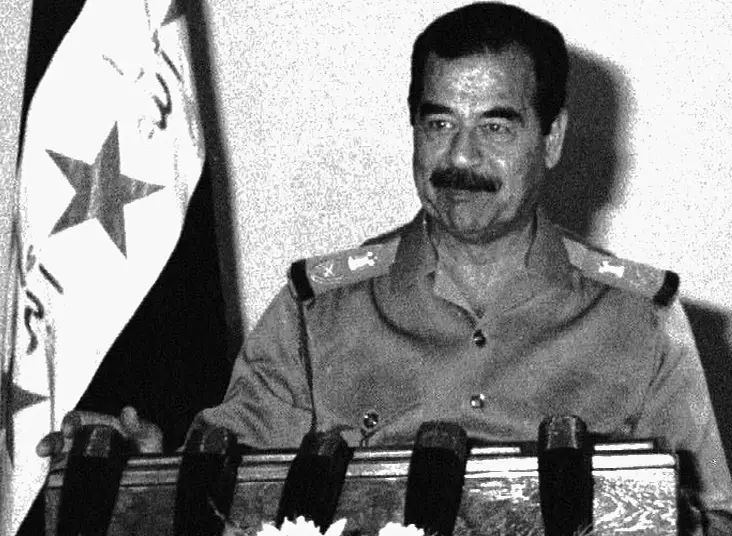
Saddam Hussein.
Weapons of mass destruction? There weren't any. And the recent Chilcot report shows that Blair, the then prime minster of the United Kingdom, did not have sufficient grounds to go to war with Iraq in that respect. This was always obvious from the onset, with Hussein's information minister soon going from being labelled Chemical Ali to Comical Ali. He was delusional and his claims were ridiculous. Iraq had nothing of any substance to threaten the west with.
Hussein was a tyrant, that is granted. Among the atrocities he committed include, but are no way limited to, attempting to exterminate Kurds, gas attacks on his own people when at war with Iran (again, mainly Kurds), stamping down on any uprisings with an iron fist and many more murderous actions. Nasty stuff, but Hussein ultimately had nothing to do Al Qaeda.
Iraq was (and in reality still is), a nation that doesn't really know what democracy is. Liberating people and putting in place a westernised, puppet government (the same as Afghanistan), is exceptionally risky.
Hussein's tactics were brutal, his regime oppressive, suppressive and cruel, but, putting it bluntly, you didn't mess with him. He implemented atrocities, but the problems were, in the main, kept within his borders.
Hussein was hung, the people were liberated, and ISIS swept through the country. So anything gained? Not really.
So on the surface the western world helped liberate the world of a tyrant.
And, coincidentally, 'what does Iraq have in plentiful supply?', I hear you ask. Oil, of course.
Colonel Gadaffi...
All of a sudden, cruel dictators are dropping like flies in the MENA region. The people of Libya sense an uprising, and, with western backing, manage to topple Colonel Gadaffi, who had been running the country since 1970.

Colonel Gadaffi.
Remember that the UK was happy to turn a blind eye to the Lockerbie atrocity, which was clearly ordered by Gadaffi directly.But when the uprising began, the western world, instead of backing him again, turned on him. Fundamentally, there is also a better alternative to meet political gains in the west: democracy and liberation.
The man who had held power for 41 years was killed by rebels on 20 October, 2011. It also happens that Libya sits on large oil reserves.
Osama Bin Laden dead...
The instigator of the attacks on the Twin Towers, the world's most wanted man, was shot dead by special US forces in Pakistan on May 2, 2011.
North American Navy Seals, under the name Operation Neptune Spear, raided his compound in Abbottabad, killed him, and buried him within 24 hours, as is custom in the Islamic tradition.
The fact that North America did not tell Pakistani authorities until after the operation had taken place speaks volumes. They couldn't trust them. Although the Pakistani hierarchy vehemently denied that they had any knowledge of Bin Laden's whereabouts, clearly the United States authorities believed they could not trust their Pakistani counterparts. A diplomatic nightmare when supposed allies are also potentially harbouring the world's most wanted man.

Osama Bin Laden.
And, although Bin Laden is dead, Bruce Riedel, a respected political analyst, believes that the damage had already been done, with Bin Laden and, just as importantly, Abdullah Azzam (the fellow co-founder of Al Qaeda with Bin Laden), able to get their angry rhetoric to spread far and wide. "After 9/11, Al Qaeda's core has been decimated by American counter-terrorist strikes, especially the raid in Abbottabad that killed Osama bin Laden. Most of the Hamburg cell is dead or captured. But Al Qaeda's ideas have spread throughout the Islamic world, and its spiritual father, Azzam, still inspires fanatics and killers every day. Azzam, an angry Palestinian who helped create three of the most dangerous terror groups in the world today, still casts an enormous shadow across our lives."
Bin Laden's death was too late. It was little more than a symbolic victory for the Americans.
Syria...
Hussein, dead. Gaddafi, dead. Bin Laden, dead. Next was supposed to be Bashar al-Assad. A sizeable chunk of the people of Syria revolted, there was an uprising and the United States and United Kingdom were happy to arm different factions that opposed his regime. It was supposed to be Gadaffi mark two.
Again, like Gadaffi and Hussein, al-Assad has a terrible human rights record, including using chemical weapons on his own people, killing around 1,500 of his own civilians in these attacks alone.
However, with Russia and Iran defending Assad, and a lack of coordination or common goal from rebel groups fighting for their own agendas, Assad remains in Damascus to this day. Sure, Syria is a bewildering mix of factional agendas, not least the Kurds, but the headline news in the west is always about ISIS. It's that threat, more than anything, that's kept Assad in his seat.
Let's move onto ISIS...
The emergence of ISIS (IS, Daesh, Islamic State), has almost put Al Qaeda into the shadows which, without going too deep into metaphors, is not a good thing.
The fact ISIS has a Twitter account, is transparent and uses modern media almost for PR purposes does mean it gets a wider voice, but it also means that it's easier for secret services to locate and identify terrorists.
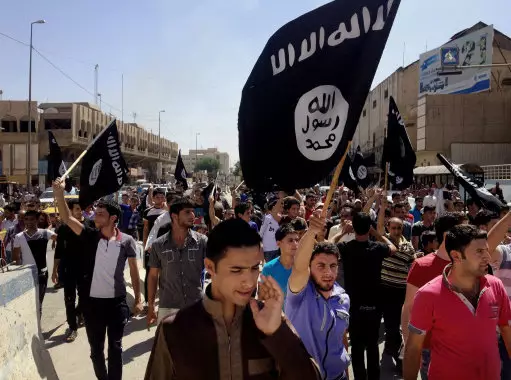
ISIS supporters.
But what is ISIS and where on earth did it come from?
Let's go quickly back to Mohamed Atta and what his motives were. Most agree they were a result of what he felt was a social injustice. This has always been the norm for terror activity. Think of the Black Panthers in North America in the 1960s, for example.
But now, ISIS has changed the dynamics of terror. It's a very particular ideology, exclusive only to certain sections of Sunni Muslims, and anyone or anything that endangers that is automatically a threat that needs to be nullified. There's a reason why the group is tearing down monuments and beheading curators in their 80s, and why a priest (also in his 80s), was beheaded in the group's name.
The barbaric actions of ISIS shock and guarantee global media exposure and condemnation. The group is using the world's media, like myself right here, granted, to promote its 'brand'.
But where did it all begin? Again, I'm not touching conspiracy theories.
It was actually founded as little more than a construct by its Jordanian founder Abu Musab al-Zarqawi in 1989. He was killed 10 years ago.
As this piece from Graeme Wood explains, ISIS is not just a mob of fanatics running around beheading unbelievers, dissenters and anyone else that doesn't follow its regime. It is a structured group with clear objectives, the most prominent being a global caliphate run according to Sharia Law.
However, it's only when North America went to war in Iraq, in 2003, that Zarqawi turned his ISIS concept into a reality. Initially called Jama'at al-Tawhid w'al-Jihad, (now known as ISIS), it has shocked and scared since its rise to prominence. Most of all, ISIS grew out of a collapsing Iraqi state, where former Baath party members and many of Saddam's previous 'foot soldiers' changed hats, and joined ISIS ranks instead. The new 'ISIS sheriff' in town also happens to be called Abu Bakr-al-Baghdadi, an Iraqi, who's as brutal as he is tactically clever when it comes to taking more ISIS ground.
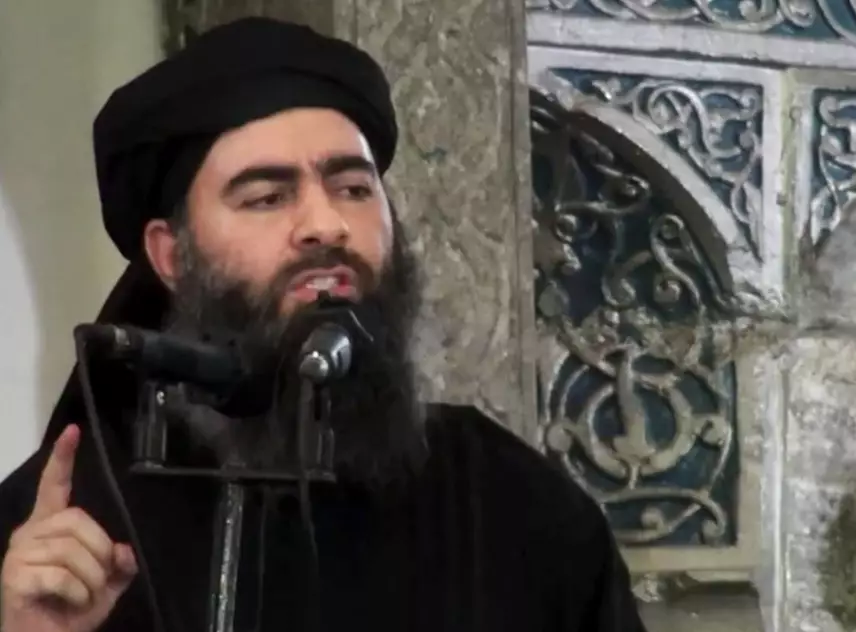
Abu Bakr-al-Baghdadi
So, in this respect, and as I've laid out from 9/11 and the consequences it brought around, the United States, although accidentally, did fan the flames for Islamic State to be born. It created a vacuum, and ISIS filled the Sunni void.
The 'popularity' of ISIS has snowballed, and now it also has a presence in Saudi Arabia, as well as a strong presence in Libya, as well as Iraq and will no doubt continue to spread over time. Nigeria is another home, while nascent cells have even cropped up in ASEAN countries.
And therein lies the formation of Islamic State as we know it today.
While the western world lives in the fear of a sporadic attack, including numerous horrendous atrocities in Belgium and France recently, bombings in busy shopping and urban areas are commonplace in Syria, Iraq and other troubled nations, including Turkey as another complex political story.
Perhaps the biggest fear now in the western perspective is mentally unhinged people attacking civilians, inspired by ISIS. The most obvious examples of this are the aforementioned murder of the priest in France and the mass shooting in a gay nightclub in Orlando, perpetrated by the reportedly closet homosexual Omar Mateen.
ISIS is quick to claim responsibility, but the reality is that the people committing these crimes are doing it in the name of their organisation without their knowhow. It's exactly what used to happen with Al Qaeda the moment a bomb went off in a far flung location.
But it's this that is most chilling.
How do you stop someone, who's never had a phone call with an ISIS member, who's never spoken to one, from collecting a gun (particularly in the States), and opening fire?
The reality is these attacks will continue, and it's that fear that ISIS thrives upon.
HOW DO WE FIX IT?
9/11 may have been 15 years ago, but its unwanted legacy still lives on through more death, destruction and desolation.
When George W. Bush said the fight against terror would be slow and painful, he was most certainly right.
Terrorism didn't start with 9/11, whether socially, politically or religiously motivated, but it was the scale, scope and symbolic nature of the attacks that meant its effects are still felt today.
Going to war, in general, is not the answer.
And Norwegian Anders Kanten, a former mine disposal expert for Nato's Quick Reaction Force in Afghanistan, tells me how the 'war against terrorism' is so flawed in principle that it's doomed to fail:
"Fighting factions will always pop up from time to time. Yesterday it was Al Qaeda, today it is ISIL and who knows what tomorrow will bring?
"There is no going back once the shit hits the fan and bullets start flying. If we take lives - someone's brother, father, best friend or child... chances are they will not be our best friends afterwards. By adding soldiers and destruction, we are adding to the problem instead of finding alternative solutions to solve them.
"War is a multi-billion-dollar business with lots of profiteers. This is an easy thing to forget. Anger, fear and revenge are powerful feelings, and it is common means in war and terrorism. To just label someone as an enemy and trying to solve the situation by killing them is an oversimplification which has been used throughout history with varying success.
"We need a new strategy if we want to be secure in our day-to-day lives and have a chance of a global peace that lasts."
So how can we begin to win these people over, I ask...
"The term 'win hearts and minds' has been an important factor to establish peace in regions. We build wells, mosques and infrastructure to win supporters. This is an excellent idea. Some people are reluctant to bite the hand that feeds them."
He wraps up with a very apt metaphor:
"To fight for peace is like fucking for virginity."
So, according to Kanten, through time and 'winning over hearts and minds', a slow process of reconciliation and understanding can prevail.
THE 9/11 LEGACY...
If you're still reading the article, thanks for sticking with me.
To say ALL of this came around as a direct result of 9/11 could be a stretch, but it's a fair statement to say that the event was a catalyst for much of what has happened in the MENA region over the past 15 years, as well as all the fears the western world feels today.
And, in all honesty, it's a terrifying mess all round.
This is the legacy of 9/11.
All images credits: PA
*****************************************************************************************************************
If you would like to read more about 9/11 and its impact on global politics, as well as global terrorism in general, please have a look at these books, papers and theories.
Diego Gambetta: 'Making Sense of Suicide Missions'.
Alex Houen: 'Terrorism and Modern Literature from Joseph Conrad to Ciaran Carson'.
Monte Palmer: 'At the Heart of Terror: Islam, Jihadists and America's War on Terrorism'.
Robert Pape, 'Dying To Win: The Strategic Logic of Suicide Terrorism'.
Asad Talal 'On Suicide Bombing'.
Featured Image Credit:Topics: 9/11